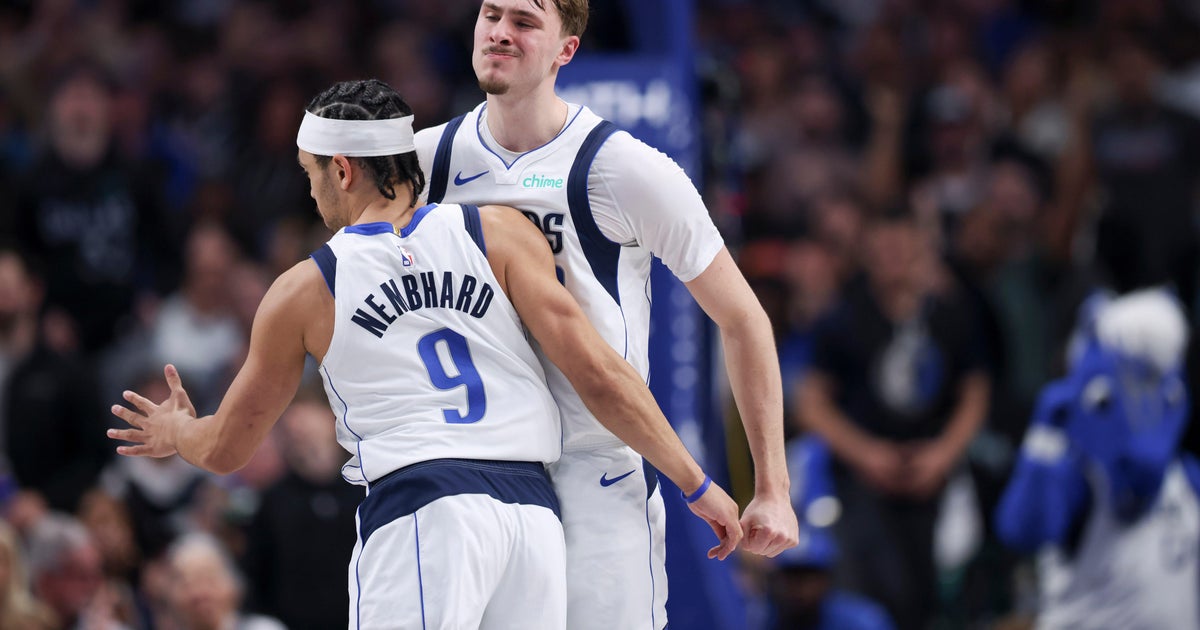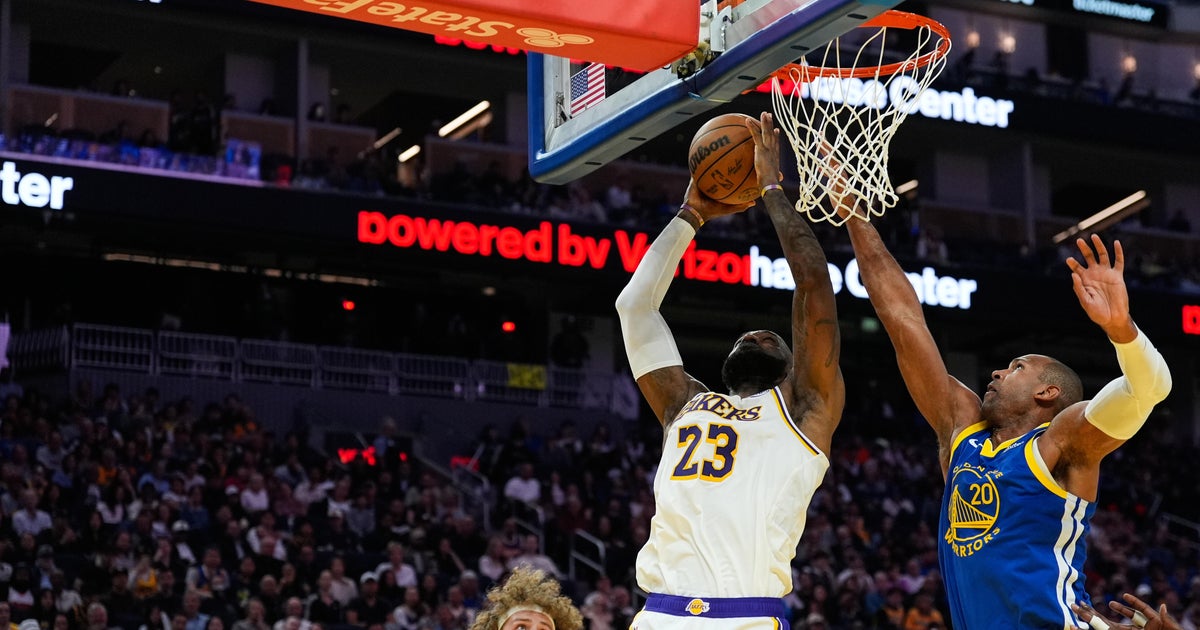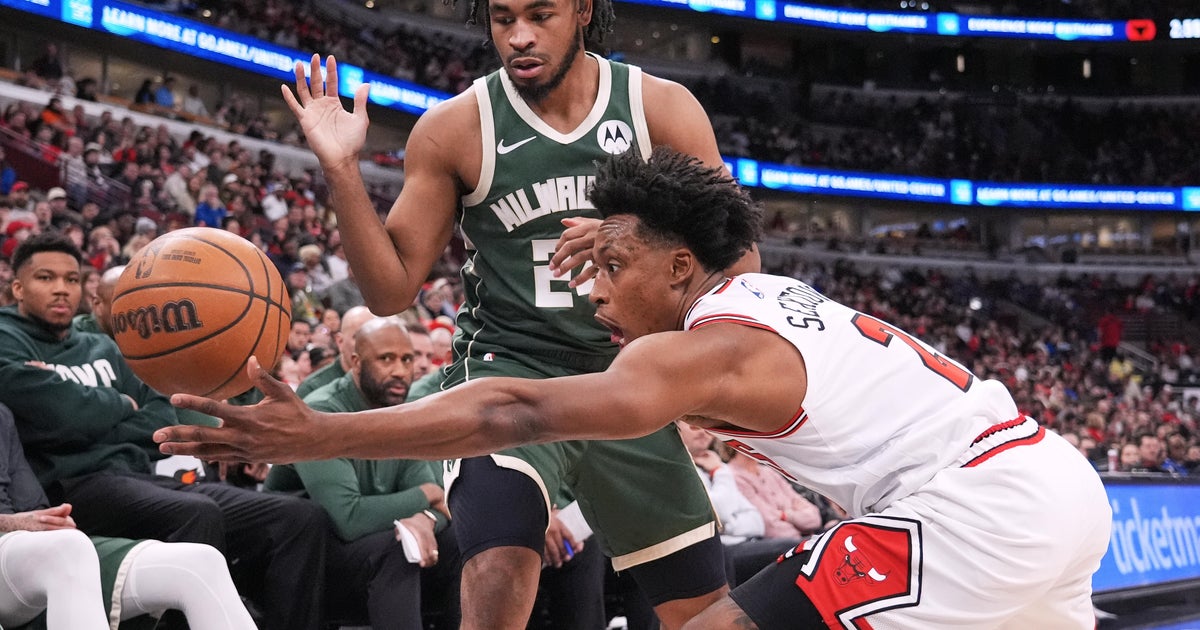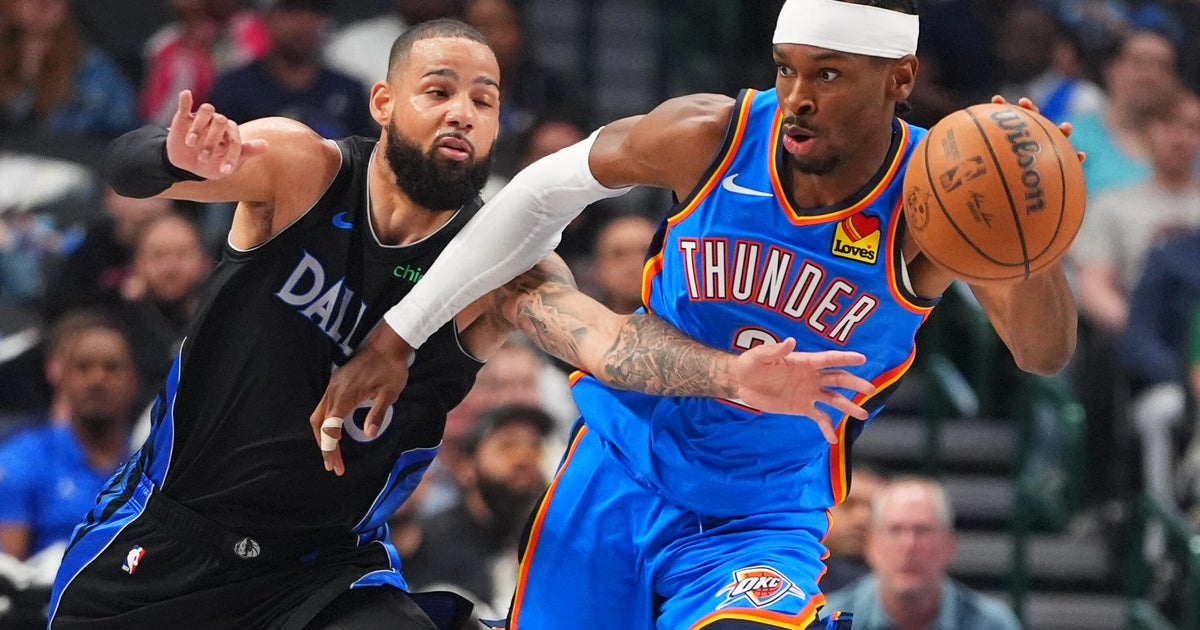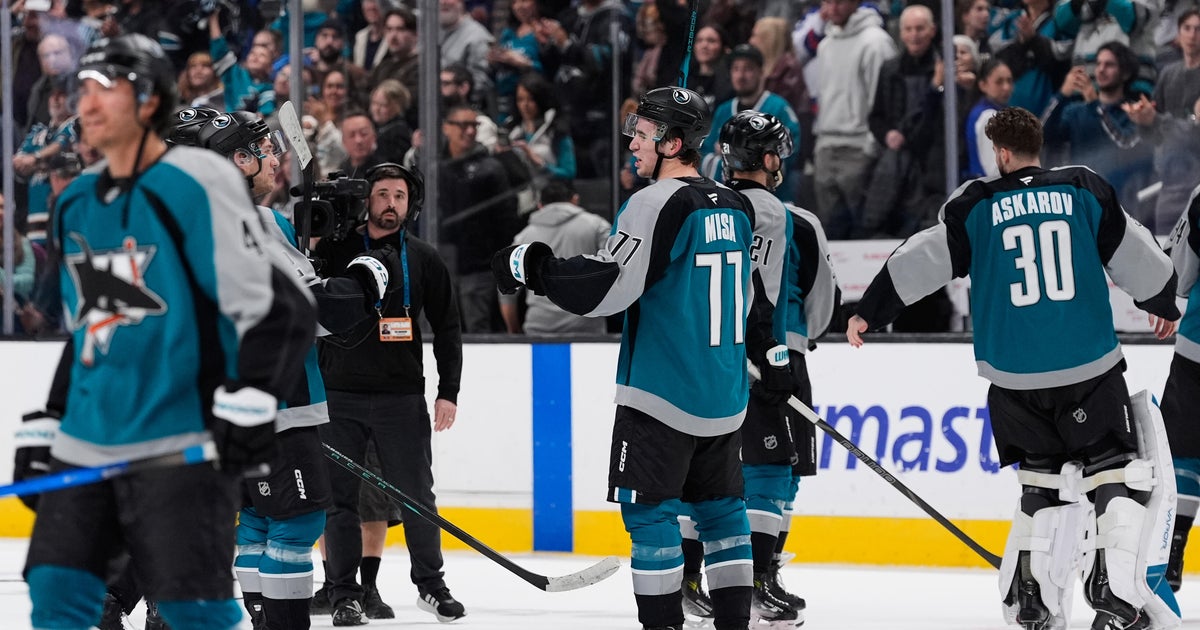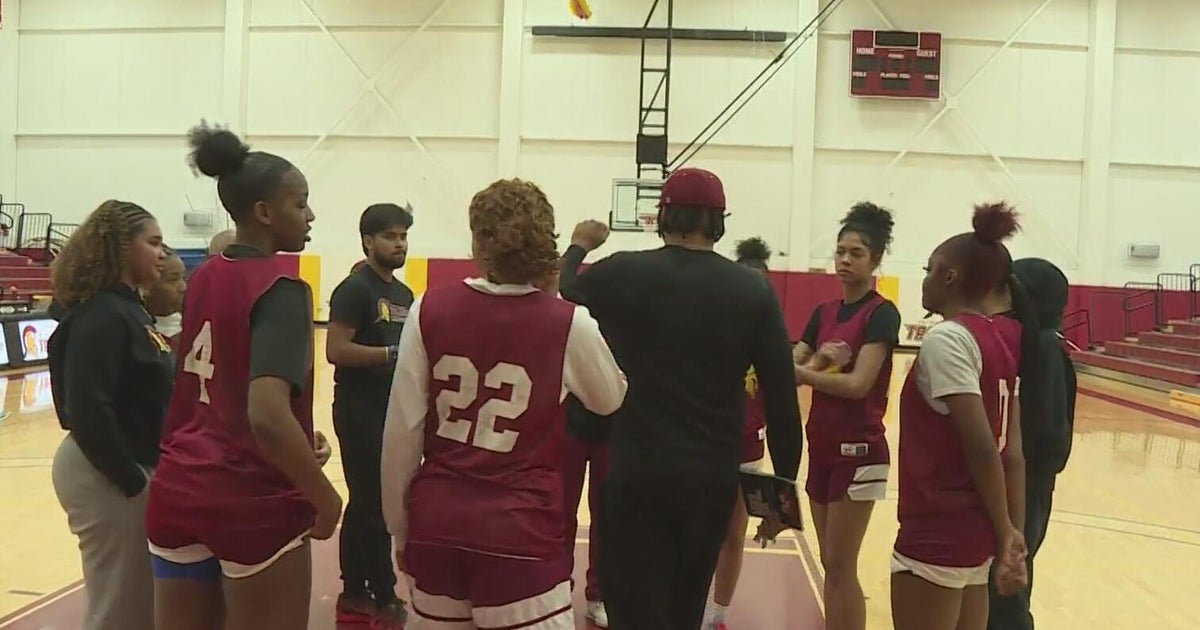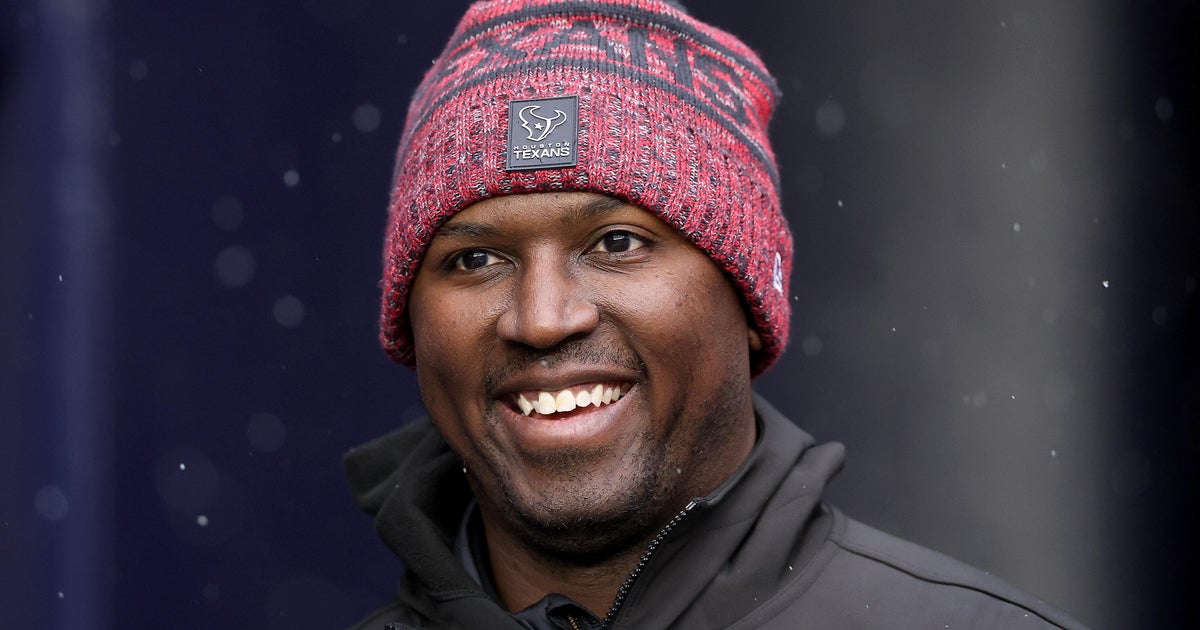Top 5 NBA Offseason Losers
By Elijah Stewart
PHILADELPHIA (CBS) --- Last week we took a look the teams that had the most success this NBA offseason, but just like in any sport, there are winners and losers. Here are the top-five teams that digressed this offseason.
1. Indiana Pacers
Key Moves: Signed Rodney Stuckey and C.J. Miles; Lost Lance Stephenson (free agency) and Paul George (leg injury)
Indiana's rocky second half of the regular season and playoffs seems to have carried over into what has become a disastrous offseason.
Stephenson balked at the Pacers' five-year, $44 million offer, only to sign for a slightly more lucrative---but much shorter---contract with Charlotte (2 years, $18 million plus a 3rd year option for $9.5 million). On the surface, it seems hard to blame the Pacers for Stephenson taking a sweetheart deal with the Hornets. Stephenson may have been looking for greener pastures elsewhere, but that doesn't change the fact that Indiana is now a worse team without him.
The Pacers are attempting to replace Stephenson with Stuckey, but Stuckey is a bad fit with the Pacers. The Pacers offense is predicated on sharing the basketball and Stuckey is the type of ball-dominant, inefficient scoring guard that could mess with the chemistry of the team.
Things went from bad to downright catastrophic when Paul George suffered a gruesome leg injury that will likely sideline him for the entire season. Doctors have said George is expected to make a full recovery, but with such a severe injury, there are no guarantees that George returns to the player he once was.
With Stephenson's departure and George's injury, the Pacers could go from the No.1 seed in the East, to out of the playoffs entirely.
2. Houston Rockets
Key Moves: Signed Trevor Ariza, acquired Alonzo Gee; Lost Chandler Parsons (free agency), Omer Asik ( trade), and Jeremy Lin ( trade)
The Rockets went for it all this offseason in their quest to add a third star to play with James Harden and Dwight Howard, but came up small. The Rockets made ill-fated attempts to sign Carmelo Anthony and Chris Bosh, whom both decided to return to their respective teams. As a result, Parsons, Asik and Lin became collateral damage in the wreckage.
If Bosh signed with Houston, all indications are that Parsons would likely still be a member of the Rockets. The Rockets felt the price tag for Parsons (3 years, $45 million) was too high for a third option and allowed Parsons to sign with Dallas. Houston also got very little in return for Lin and Asik, who they dumped to clear cap room for Bosh. Both players were key parts of Houston's bench last season and have yet to be replaced with comparable talent.
The Rockets replaced Parsons with Trevor Ariza for almost half the price (4 years, $32 million). However, Ariza already failed with the Rockets once before, and was a disappointment for most of the five-year contract Houston signed him to in July of 2009.
Ariza was solid last season in a contract year with Washington, but who knows how Ariza plays with the financial security of a long-term contract and without a point guard like John Wall to get him open looks. The Rockets will miss the Parsons' shooting and offensive versatility, leaving Harden and Howard to pick up the slack on offense.
3. Los Angeles Lakers
Key Moves: Claimed Carlos Boozer (waivers), traded for Jeremy Lin; Re-signed Jordan Hill, Nick Young and Xavier Henry; Drafted Julius Randle, lost Pau Gasol (free agency)
The Lakers had big aspirations this offseason to sign either LeBron James or Carmelo Anthony, which would allow them to transition from the "Kobe Bryant Era," but ended up with neither player. For years, the Lakers have been the destination franchise for marquee free agents, but an unstable front office and no clear vision moving forward has scared free agents away.
To compound on their failure to secure a superstar, Los Angeles re-signed Hill to an outrageous two-year $18 million deal and "Swaggy P" Young to a four-year $21 million deal. Hill and Young played well last season, but neither has ever made major contributions to a winning team and were most likely products of Mike D'Antoni's free-flowing offense last season.
Once James and Anthony signed elsewhere, the Lakers had to fill out the roster quickly with the remaining cap room. Los Angeles traded for Lin and claimed Boozers off waivers to replace Gasol. Both players will have a chip on their shoulder after being unceremoniously dumped by their previous teams, but Lin is far removed from the days of "Linsanity" and Boozer is just a shell of his former all-star self.
While rookie Julius Randle is an exciting player worth paying attention to, but with Bryant and Steve Nash in the twilight their careers, there appears to be no light at the end of the tunnel for the Lakers.
4. Miami Heat
Key Moves: Re-signed Chris Bosh and Dwyane Wade, signed Luol Deng, Josh McRoberts, Danny Granger; Resigned Mario Chalmers, drafted Shabazz Napier; Lost LeBron James (Free Agency)
There's no way around it. The Heat will not be able to replace LeBron James. Miami's fate as "offseason losers" was sealed when James spurned the Heat to return to Cleveland. It's impossible to replace the best player in the game.
Heat President Pat Riley signed Granger and McRoberts with the hope they would play alongside James, Wade and Bosh, who would take pay cuts to return to South Beach. Instead, James left and Miami was forced to scramble in order to pick up the pieces. Bosh flirted with the idea of joining Houston before the Heat came in at the last second with a five-year $118 million offer to keep the big man in Miami. Riley got Wade to take a hometown discount (2 years, $31 million) and then added Deng (2 years, $20 Million) to fill the void left by James at small forward.
Bosh and Deng can certainly still play at a high level, but there will be a lot of pressure on Bosh to be the number one option and Deng will not come close to James' production. The Heat had no choice but to bring Bosh back at any cost, but that contract will come back to haunt Miami near the end of the deal.
Wade taking less money is a small victory for Miami, but at age 32 his knees aren't getting any better. James' departure and Wade's declining health all but closes Miami's window as a championship contender.
5. Orlando Magic
Key Moves: Signed Channing Frye, Ben Gordon, Luke Ridnour, Willie Green, traded for Evan Fournier, drafted Aaron Gordon and Elfrid Payton; Lost Arron Afflalo (trade), Jameer Nelson
One of the biggest challenges in running a small market franchise is attracting big name free agents. To make up for this, small market teams often overpay for second or third-tier free agents. The Magic are exhibit-A for this type of offseason.
In a head-scratching trade, Orlando gave up leading scorer Arron Afflalo on draft night for Evan Fournier and a second round pick. Fournier has some talent, but has yet to live up to his first round selection.
The move cleared cap room for Orlando, but they did not spend it wisely. Frye was one of the feel good stories of last season after he returned from a life-threatening heart condition to play well in Phoenix. Nevertheless, a four-year, $32 million deal is a steep price for seven-foot jump shooter who brings no rebounding or interior defense.
The Magic also made the most inexplicable signing this offseason when they signed Ben Gordon to a two-year, $9 million deal. Gordon was one of the worst players on Charlotte last season and was eventually waived by the team in March, after appearing in just 19 games.
Instead of drafting players that could bring something new to the table, the Magic added more speed and athleticism by selecting Aaron Gordon and Elfrid Payton in the first round of the draft. Both are gifted athletically, but raw offensively. Neither guy can shoot (one of Orlando's biggest weaknesses) and will struggle when the game slows down.
Elijah Stewart currently works for the 94WIP Morning Show, as he continues his studies at CUNY Graduate School of Journalism in New York.
You may also be interested in these Sports stories:
